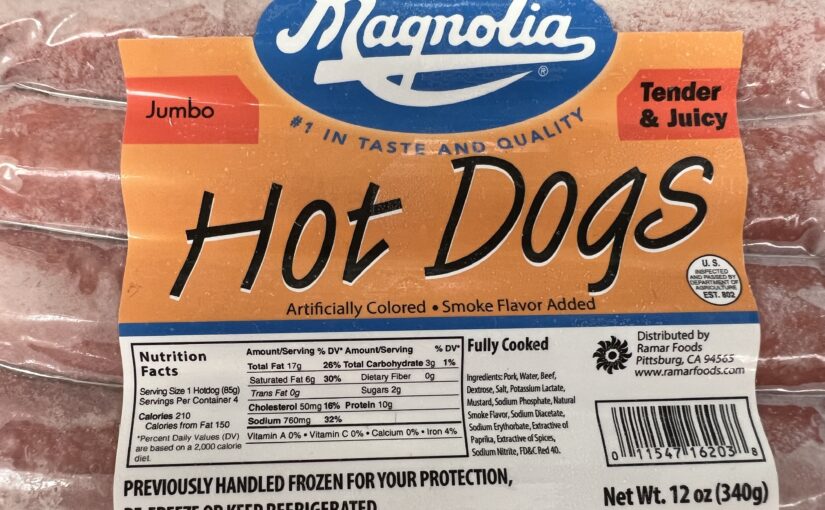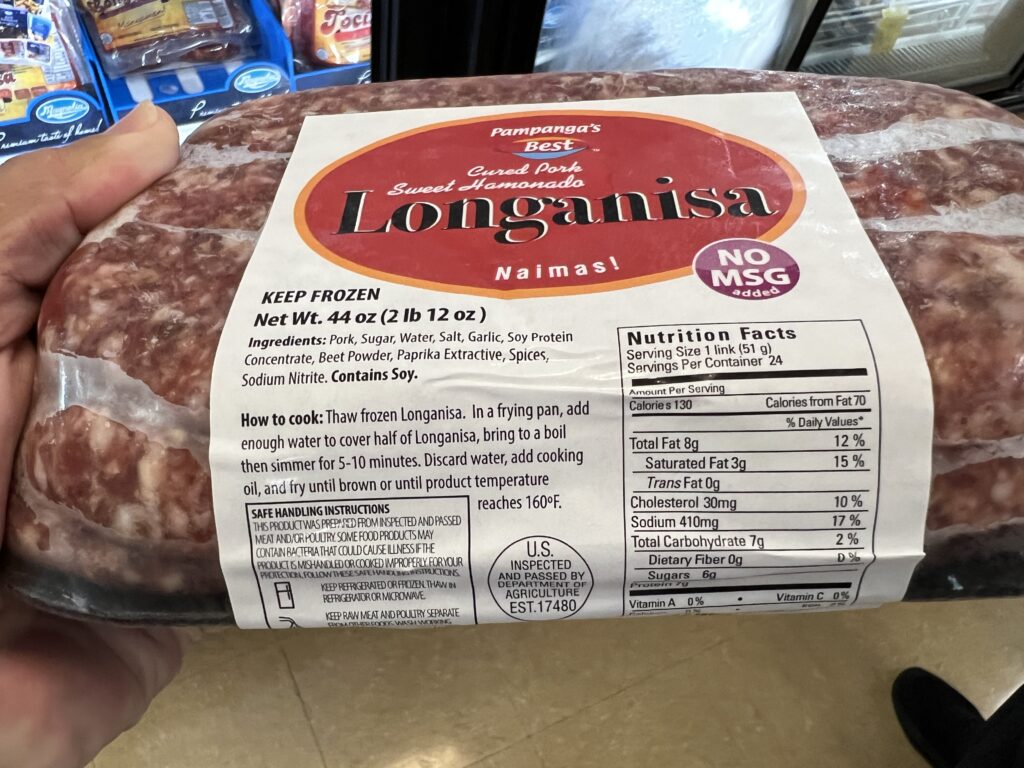
Food is the source of energy and nutrition for our bodies. It sustains us and keeps us healthy. However, the food we consume today is not the same as what our ancestors ate. In today’s world, food is not just a source of nutrition, but also a commodity that is manufactured, packaged, and sold. Manufacturers are adding preservatives to our food to increase its shelf life and prevent decay. Preservatives are added to all kinds of food, from processed meats to baked goods, to fast food. However, these preservatives are not only unnecessary but also toxic and harmful to our bodies.
Preservatives can be classified into two categories: natural and artificial. Natural preservatives, such as salt and vinegar, have been used for centuries to preserve food. These preservatives work by inhibiting the growth of bacteria and fungi that cause food spoilage. However, many manufacturers use artificial preservatives that are harmful to our health. These preservatives are synthetic chemicals that have been manufactured in a lab and are not found in nature. They are added to food to prevent it from going bad and to enhance the flavor and appearance of the food.
The problem with artificial preservatives is that they are not safe for human consumption. Many preservatives have been linked to cancer, allergies, and other health problems. The most dangerous preservatives are carcinogens, which are chemicals that are known to cause cancer. Carcinogenic preservatives include sodium nitrite, potassium bromate, and butylated hydroxyanisole (BHA) and butylated hydroxytoluene (BHT).
Sodium nitrite is a preservative commonly used in processed meats, such as hot dogs and bacon. It is added to preserve the color and flavor of the meat. However, sodium nitrite is a known carcinogen that has been linked to colon cancer, pancreatic cancer, and other types of cancer. The American Institute for Cancer Research recommends not consuming processed meat at all.
Potassium bromate is another preservative that is commonly used in bread and other baked goods. It is added to flour to make the bread rise faster and to give it a better texture. However, potassium bromate is a carcinogen that has been linked to kidney and thyroid cancer. The European Union and many other countries have banned the use of potassium bromate in food products.
BHA and BHT are preservatives that are commonly used in snack foods, cereal, and canned foods. They are added to prevent the oils in food from going rancid, which would cause the food to spoil. However, BHA and BHT are also carcinogens that have been linked to cancer, liver enlargement, and kidney damage.
The dangers of preservatives are not just theoretical. Many people have become ill after consuming food that contains preservatives. Studies have shown that the use of preservatives in food may be linked to migraines, high blood pressure, and allergic reactions. A 2015 study published in the journal Food Additives & Contaminants found that exposure to sodium nitrite, a common preservative in cured meats, may lead to an increased risk of colorectal cancer. Another study published in the journal Toxicology and Industrial Health found a link between the preservatives BHA and BHT, commonly found in processed foods, and an increased risk of cancer in animals.
The sad truth is that preservatives are added to our food for one reason only: to increase profits for the food industry. The food industry has no interest in our health or well-being. They want to sell as much food as possible, and if that means adding toxic chemicals to the food, so be it. The Food and Drug Administration (FDA) is supposed to protect us from harmful food additives, but they are failing in their duty. The FDA has approved many preservatives that are known to be harmful to our health, and they continue to allow these chemicals to be added to our food.
We, as consumers, have the power to demand change. We can choose to buy organic, non-processed food that is free of preservatives. We can also demand that the FDA remove toxic preservatives from our food. We can write to our elected officials and demand that they take action to protect our health. We can also educate ourselves and others about the dangers of preservatives and the importance of eating real, whole food.
In conclusion, it’s time to demand change. We must demand that toxic preservatives be removed from our food. We must demand that the food industry stop poisoning us for the sake of profit. We must demand that the FDA do its job and protect us from harmful food additives. It’s time to take back our health and our food.
Known preservatives that are carcinogens:
- Sodium Nitrite: Sodium nitrite is commonly used in processed meats like bacon and hot dogs. The daily recommended intake of sodium nitrite is less than 120 milligrams. A single serving of bacon has about 120 to 160 milligrams of sodium nitrite, and as little as 22 milligrams per serving can cause a headache, dizziness, and shortness of breath. Ingesting large quantities of sodium nitrite can cause vomiting, seizures, and even coma.
- Potassium Bromate: Potassium bromate is commonly used in bread and other baked goods. However, it has been banned in the European Union and other countries due to its harmful effects. The recommended intake of potassium bromate is zero. Ingesting potassium bromate can lead to nausea, vomiting, and diarrhea. Long-term exposure to high levels of potassium bromate may cause kidney damage and cancer.
- Butylated hydroxyanisole (BHA): BHA is a widely used preservative in many packaged foods, such as chips, crackers, and cereals. The daily recommended intake for BHA is less than 2 milligrams per kilogram of body weight. Consuming large amounts of BHA can cause allergic reactions and has been linked to changes in liver and kidney function in some animal studies.
- Butylated hydroxytoluene (BHT): BHT is another preservative found in many packaged foods, including cereals and potato chips. The recommended intake for BHT is less than 0.3 milligrams per kilogram of body weight. Ingesting large quantities of BHT can cause cardiovascular problems and liver and kidney damage.
Known preservatives that are classified as dangerous to our health:
- Sodium Benzoate: Sodium benzoate is commonly found in soft drinks, fruit juices, and salad dressings. They say it’s considered safe in small doses, which actually means it won’t harm you now but it will later. High doses can cause allergic reactions, hives, and even anaphylactic shock. Studies have also suggested that sodium benzoate may exacerbate symptoms of asthma and increase the risk of hyperactivity in children.
- Sodium Metabisulfite: Sodium metabisulfite is commonly used in processed foods, such as dried fruit and wine. It is also used as a preservative in some pharmaceutical products. Ingesting large amounts of sodium metabisulfite can cause severe allergic reactions, especially in people with asthma. Symptoms may include difficulty breathing, tightness in the chest, and swelling of the throat or tongue.
- Propyl Gallate: Propyl gallate is a preservative commonly found in processed foods, including meat products, baked goods, and snack foods. Ingesting large amounts of propyl gallate can cause stomach upset, skin rashes, and breathing difficulties.
- Tert-Butylhydroquinone (TBHQ): TBHQ is a preservative used in many processed foods, including fast food, snack foods, and pet foods. Ingesting large amounts of TBHQ can cause nausea, vomiting, ringing in the ears, delirium, and even convulsions.
- Polysorbate-80: Polysorbate-80 is a preservative commonly used in ice cream, mayonnaise, and other processed foods. Ingesting large amounts of polysorbate-80 can cause allergic reactions, including hives and anaphylaxis.
- Monosodium Glutamate (MSG): MSG is a flavor enhancer that is commonly added to processed foods, including soups, chips, and canned foods. Some people may experience headaches, sweating, flushing, and other symptoms after consuming large amounts of MSG.
- Calcium Propionate: Calcium propionate is used as a preservative in bread and other baked goods. Ingesting large amounts of calcium propionate can cause skin irritation, stomach upset, and may exacerbate symptoms of asthma in some people.
The classification of known preservatives that are carcinogens or classified as dangerous to our health is based on extensive scientific research and studies conducted by various health organizations, including the World Health Organization (WHO) and the International Agency for Research on Cancer (IARC). Many of these preservatives have been linked to various health risks, and their use is regulated or prohibited in some countries. It’s important to note that the danger level of each preservative may vary based on the individual’s age, health condition, and other factors.
References:
- “Effects of Food Additives on Immune Cells As Contributors to Body Weight Gain and Immune-Mediated Metabolic Dysregulation” The study investigates the impact of food additives on immune cells in relation to body weight gain and metabolic dysregulation. The researchers found that certain food additives, such as emulsifiers and artificial sweeteners, can cause dysfunction in immune cells, leading to inflammation, insulin resistance, and weight gain. The conclusion suggests that reducing the consumption of these food additives may be a viable strategy for preventing and treating obesity and related metabolic disorders.
- “Consumption of ultra-processed foods and cancer risk: results from NutriNet-Santé prospective cohort” The study conducted a prospective cohort study to investigate the relationship between the consumption of ultra-processed foods and cancer risk. The researchers used data from the NutriNet-Santé study and found that higher consumption of ultra-processed foods is associated with an increased risk of cancer. The conclusion suggests that reducing the intake of ultra-processed foods may be a useful public health strategy for preventing cancer.
- “Effects of sodium benzoate, a widely used food preservative, on glucose homeostasis and metabolic profiles in humans” This study investigated the effect of sodium benzoate, a commonly used food preservative, on glucose homeostasis and metabolic profiles in humans. The researchers conducted a randomized, double-blind, placebo-controlled crossover trial and found that sodium benzoate consumption was associated with impaired insulin sensitivity and glucose tolerance, as well as increased levels of certain markers of inflammation. The conclusion suggests that reducing the consumption of foods containing sodium benzoate may be beneficial for reducing the risk of metabolic disorders such as Type 2 diabetes.
- “Carcinogenicity studies of sodium nitrite and sodium nitrate in F-344 rats” This study conducted carcinogenicity studies of sodium nitrite and sodium nitrate in F-344 rats. The researchers exposed the rats to these food additives in their diet for a two-year period and then evaluated the occurrence of tumors in different organs. The conclusion of the study was that long-term exposure to high levels of sodium nitrate or nitrite in the diet could lead to the development of cancer in various organs, including the liver, pancreas, and thyroid gland.

Disclaimer: The information provided in this article is for educational purposes only and is not a substitute for medical advice. Always consult a healthcare professional before making changes to your diet or lifestyle.


